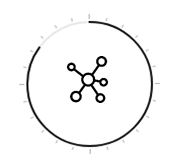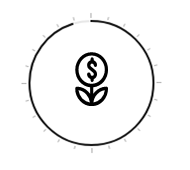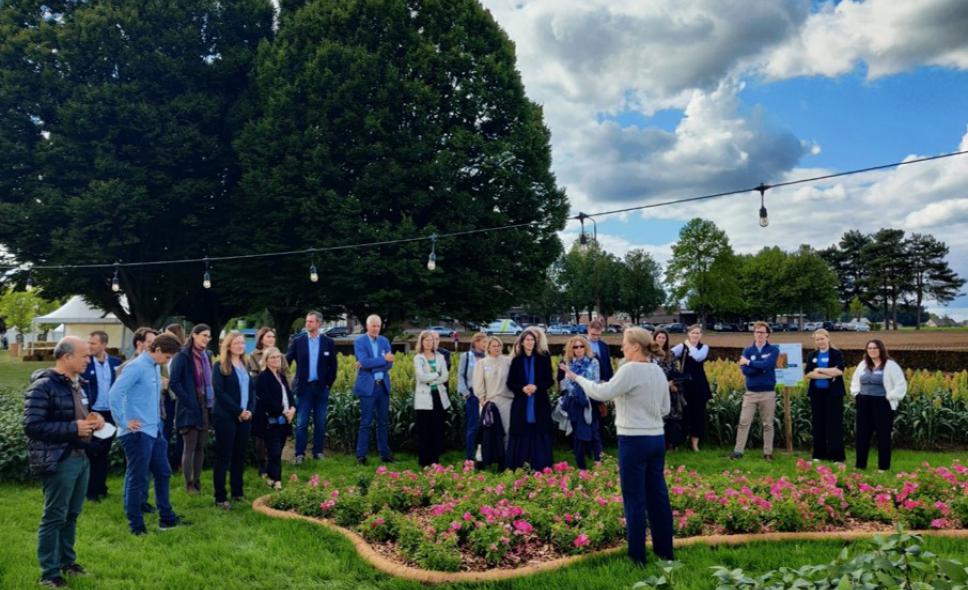About Us
Subtitle
Introduction with vision & mission
 |
 |
 |
 |
|
15 currently active EU ERA-Net Cofunds and self-sustained initiative |
29 co-ordination active and ended predecessor actions |
1100+ Mio Euro funding |
89 transnational calls |
Objectives:- Promote collaboration: Build on previous successes and strengthen cross-sector partnerships between ERA-Nets in agri-food and biotechnology through joint funding of research projects. - Market, regulatory and societal impacts: Carry out joint activities to support the market, regulatory or societal application of research results after completion of the ERA-NET. - Common research priorities: Identify shared research and innovation priorities agreed by participating national programmes and address them through new joint calls. - Maintaining excellence: Maintain best practices and management competences to maintain a standard of excellence. - Support Horizon Europe partnerships and missions: Contribute to the planning and implementation of new Horizon Europe partnership and missions. - Expanding impact: Broaden initiatives to reach stakeholders and increase geographical coverage for greater impact. - Strategic alignment with SDGs: Contribute to achieving the strategic goals of the Sustain Development Goals (SDGs), with a focus on zero hunger, industrial innovation and infrastructure, responsible consumption and production, living on land, partnership for the goals, the farm2fork strategy and the EU Green Deal. |
TARGET GROUPSThe primary end-user of the results of GEH are the research communities in the Agri-food and biotechnology sector. They will directly benefit from the actions under the projects via funding, networking and other accompanying measures. In longer term the Agri-food and biotechnology sector, in Europe and globally, will take up the results of the research supported under GEH, thus improving the vision of a bioeconomy, which provides healthy and ample food as well as a broadest possible range of industrial products based on renewable raw material in an eco-friendly manner. Ultimately, society in Europe and the world will benefit from the impact generated by GEH's activities in terms of more sustainable, secure, resilient and ecosystems friendly agricultural production systems. |
OUTCOMESAt the core of GEH, partners anticipate robust collaboration among national research funders in Europe's Agri-food and biotechnology sector. This entails deploying proven funding instruments, developing new tools, and implementing diverse measures to benefit research communities. Additionally, GEH aims to foster a dynamic European research community in Agri-food and biotechnology, connected through an extensive network. The partnership envisions responding adeptly to HEU Partnership/Mission opportunities and supporting a range of outstanding transnational research projects jointly funded by national partners. Ultimately, GEH seeks to advance scientific knowledge and innovation in the Agri-food and biotechnology sector, enhancing agricultural production, ensuring a secure food supply, and promoting the development of biomass for industries based on renewable raw materials. |
IMPACTSThrough collaborative, transnational research and innovation in the Agri-food and biotechnology sector, GEH enhances the sector's efficiency, fostering a sustainable, resilient, and ecosystems-friendly food supply and security. The focus extends to supporting non-food biomass production, laying the foundation for a bioeconomy independent of fossil feedstock, powered by biotechnology. GEH aligns strongly with critical policy objectives, including the SDGs and Europe's Green Deal. Tailored to meet the goals outlined in the Horizon Europe 2021 work program's Destination 3, GEH addresses key impacts: reforming and enhancing the EU R&D&I system, prioritizing investments, improving access to excellence, enhancing scientific production quality, deepening the ERA, coordinating national and regional R&D&I program, fostering interconnected knowledge ecosystems, promoting an open and inclusive research and innovation system, aligning strategic research with societal needs, and strengthening capacities for open science within the EU R&D&I systems. |
